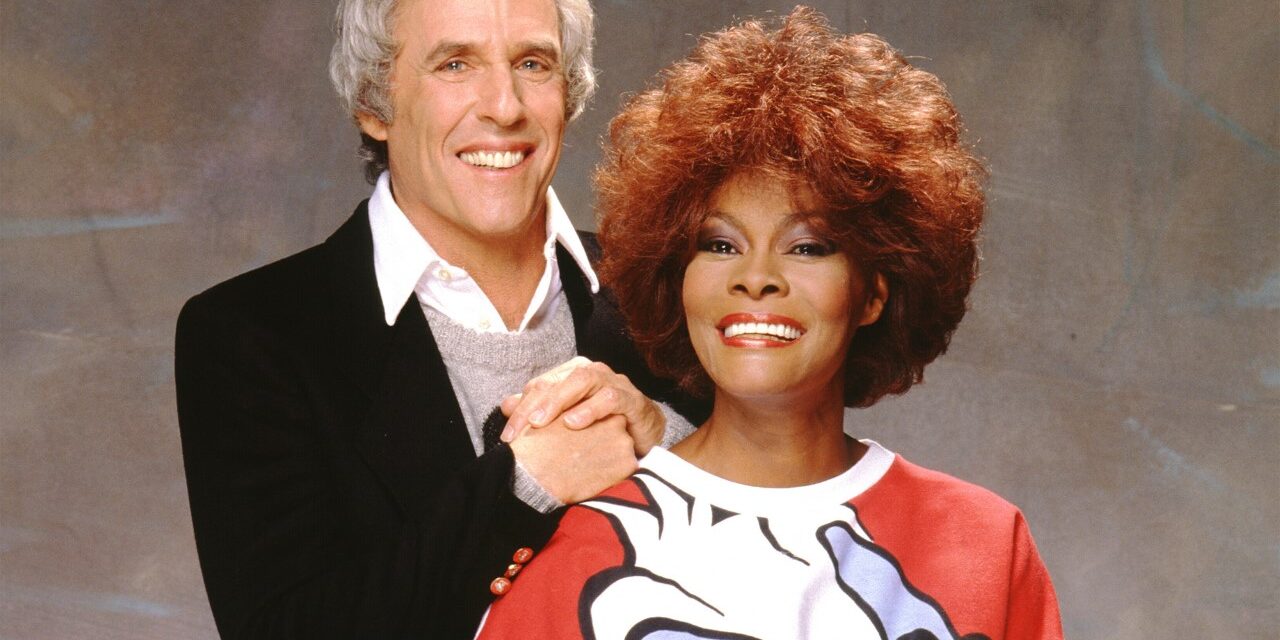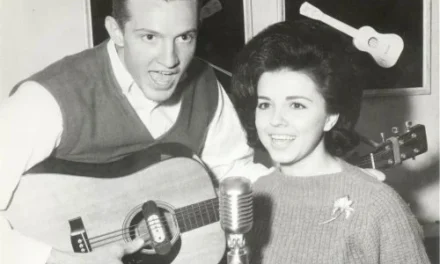
By Danny R. Johnson – Entertainment News Editor
Burt Bacharach, the debonair pop composer, arranger, conductor, record producer, and occasional singer whose hit songs in the 1960s distilled that decade’s mood of romantic optimism died on February 8 at his home in Los Angeles. He was 94.
His publicist Tina Brausam confirmed the death. No specific cause was given.
A die-hard romantic, Bacharach fused the chromatic harmonies and long, angular melodies of late-19th-century symphonic music with modern pop orchestration and embellished the mixture with a staccato rhythmic drive. His effervescent compositions epitomized sophisticated hedonism to a generation of young adults only a few years older than the Beatles.
Because of the high gloss and apolitical stance of the songs Bacharach wrote with his most frequent collaborator, the lyricist Hal David, during an era of confrontation and social upheaval, they were often dismissed as little more than background music by listeners who preferred the hard edge of a rock or the intimacy of the singer-songwriter genre. But in hindsight, the Bacharach-David team ranks high in the pantheon of pop songwriting.
Bacharach collaborated with many lyricists over the years and wrote some of his own words. But his primary collaborator was David, seven years his senior, whom he met in a music publisher’s office in 1957. The team’s artistic chemistry solidified in 1962, beginning with the hits they wrote and produced for Dionne Warwick, a gifted young gospel-trained singer from East Orange, N.J. Bacharach met Warwick at a recording session for the Drifters that included “Mexican Divorce” and “Please Stay,” two songs he wrote with the lyricist Bob Hilliard. Hearing Warwick, a backup singer, Bacharach realized he had found the rare vocalist with the technical prowess to negotiate his rangy, fiercely complex melodies, with their tricky time signatures and extended asymmetrical phrases.
The artistic synergy of Bacharach, David, and Warwick defined the voice of a young, passionate, on-the-go everywoman bursting with romantic eagerness and vulnerability. Their sophisticated style was the immediate forerunner of the earthier Motown sound of the middle and late 1960s. Beginning with “Don’t Make Me Over” in 1962, the team turned out a steady stream of hits for Warwick, among them “Anyone Who Had a Heart,” “Walk On By,” “Alfie,” “I Say a Little Prayer” and “Do You Know the Way to San Jose.”
Bacharach’s success transcended the Top 40. He won two Academy Awards for best song: for “Raindrops Keep Fallin’ on My Head,” written with David, in 1970, and “Arthur’s Theme (Best That You Can Do),” written with Peter Allen, Carole Bayer Sager, and Christopher Cross, in 1982. His original score for the 1969 film “Butch Cassidy and the Sundance Kid,” which included “Raindrops,” a No. 1 hit for B.J. Thomas, won an Oscar for best original score for a nonmusical motion picture. And the Bacharach-David team conquered Broadway in December 1968 with “Promises, Promises.”
Adapted by Neil Simon from “The Apartment,” Billy Wilder’s 1960 film about erotic hanky-panky at a Manhattan corporation, “Promises, Promises” was one of the first Broadway shows to use backup singers in the orchestra pit and pop-style amplification. Along with “Hair,” which opened on Broadway that same year, it presaged the pop music era.
“Promises, Promises” ran for 1,281 performances, yielded hits for Warwick in the catchy but fiendishly difficult title song and the folk-pop ballad “I’ll Never Fall in Love Again,” and was nominated for seven Tony Awards. Two of its cast members won, but the show itself did not. Both “Promises, promises” and “Hair” were lost in the best-musical category to the much more traditional “1776.” It was successfully revived on Broadway in 2010.
n 1973, Bacharach and David wrote the score for the movie musical “Lost Horizon,” adapted from the 1937 Frank Capra fantasy film of the same name. The movie was a catastrophic failure. Shortly after that, the Bacharach-David-Warwick triumvirate, which had already begun to grow stale, split up acrimoniously amid a flurry of lawsuits.
Reflecting on his split with Mr. David in 2013 in his autobiography, “Anyone Who Had a Heart: My Life and Music,” written with Robert Greenfield, Bacharach acknowledged that “it was all my fault, and I can’t imagine how many great songs I could have written with Hal in the years we were apart.”
Bacharach remained in the public eye until the end. In December 2011, “Some Lovers,” a musical for which he wrote the music and Steven Sater’s lyrics, opened at the Old Globe in San Diego. “What’s It All About? Bacharach Reimagined,” a New York Theater Workshop production built on his songs, opened Off-Broadway in December 2013. (An earlier revue based on the Bacharach-David catalog, “The Look of Love,” had a brief Broadway run in 2003.) As recently as 2020, Bacharach was still writing new music, releasing a collaboration with the singer-songwriter Melody Federer.
In 2013, Bacharach began collaborating with Costello, Sater, and the television writer and producer Chuck Lorre on a stage musical based on the “Painted from Memory” album but also including new songs. That project never came to fruition, although some of the new material ended on Costello’s recent albums. All the music from the “Painted from Memory” project is included in “The Songs of Bacharach & Costello,” a boxed set that also includes Costello’s recordings of Bacharach songs, which is scheduled for release next month.



